Complete Solutions to Illustration of chapter CAPACITOR AND CAPACITANCE of Class 12 book with complete answers and questions
| Class 12 | PHYSICS |
| Chapter | CAPACITOR AND CAPACITANCE |
| CENGAGE PHYSICS | Illustration |
| Number Of Questions | 28 |
| Academic Year | 2023-24 |
A capacitor has rectangular plates of length a and width b. The top plate is inclined at a small angle as shown in. The plate separation varies from `d=y_(0)` at the left to `d=2y_(0)` at the right, where `y_(0)` is much less than a or b. system.
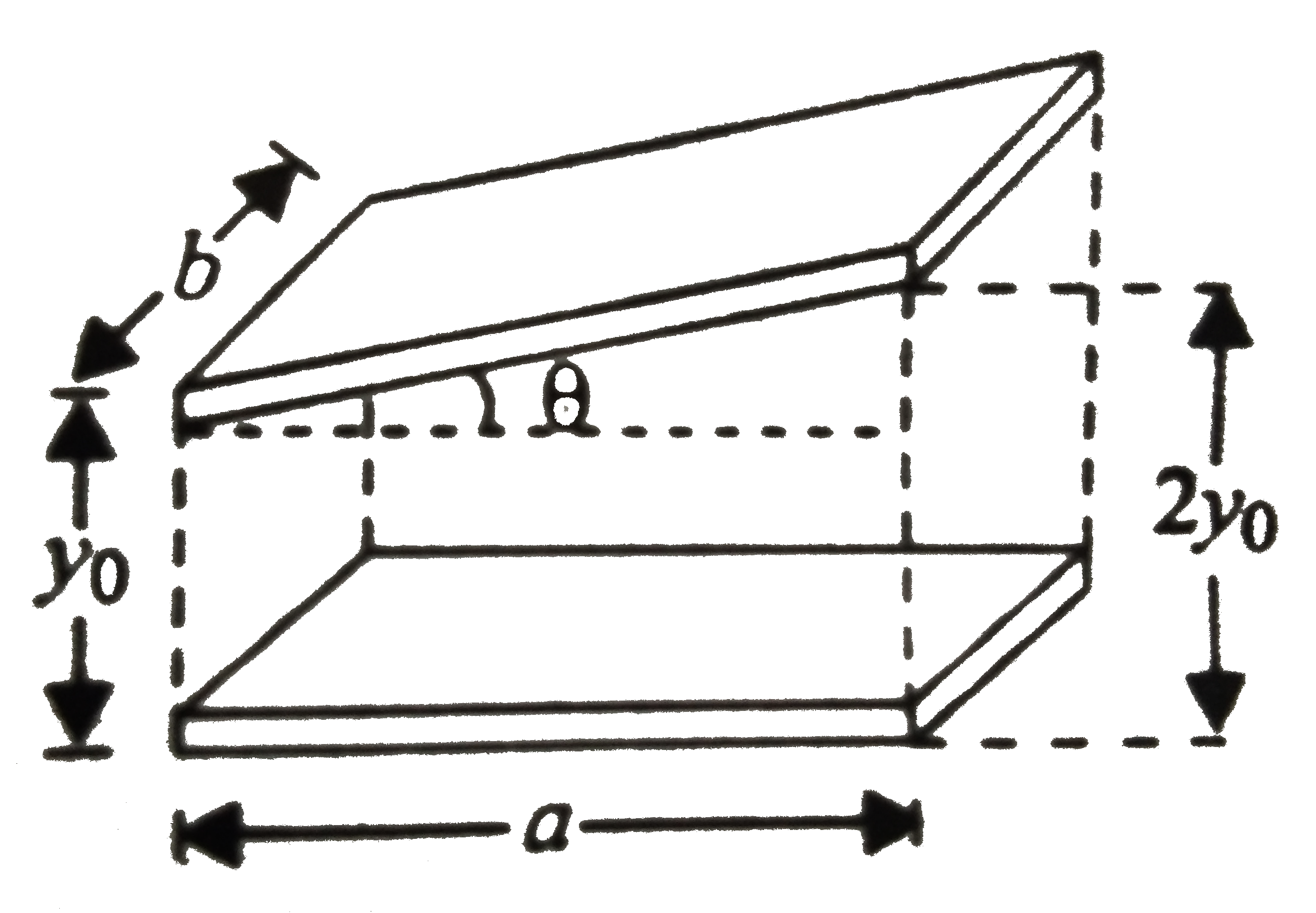 .
.
View SolutionA capacitor of capacitance C, which is initially uncharged , is connected with a battery of emf `epsilon`. Find the heat dissipated in the circuit during the process of charging .
View SolutionA capacitor of capacitance C, which is initially charged up to a potential differnce `epsilon`, is connected with a battery of emf `epsilon//2` such that the positive terminal of the battery is connected with the positive plate of the capacitor. After a long time.
i. find the total charge flow through the battery
ii. find the total work done by the battery
iii. Find the heat dissipated in the circuit during the process of charging.
View SolutionA parallel plate capacitor has capacitance C. If the charges of the plates are `Q` and `-3Q`, find of the
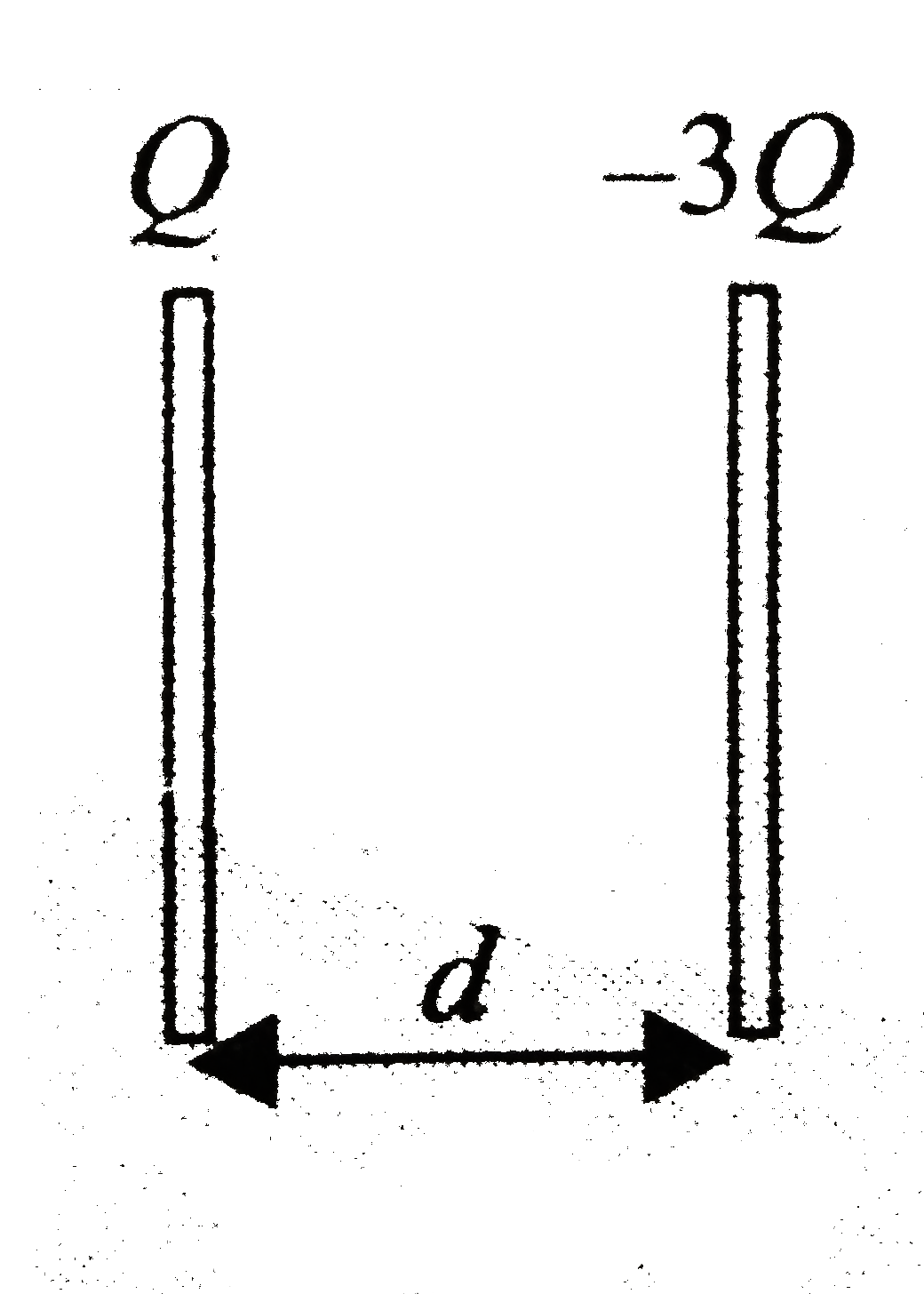
i. charges at the inner surfaces of the plates
ii. Potential difference between the plates
iii. charge flown if the plates are connected
iv. energy lost by the capacitor in (iii.)
v. charge flown if any plate is earthed.
View SolutionThere are two spheres of radii `R` and `2R` having charges `Q` and `Q//2`, respectively. These two spheres are connected with a cell of emf `V` volts as show in. When the switch is closed, find the final charge on each sphere.
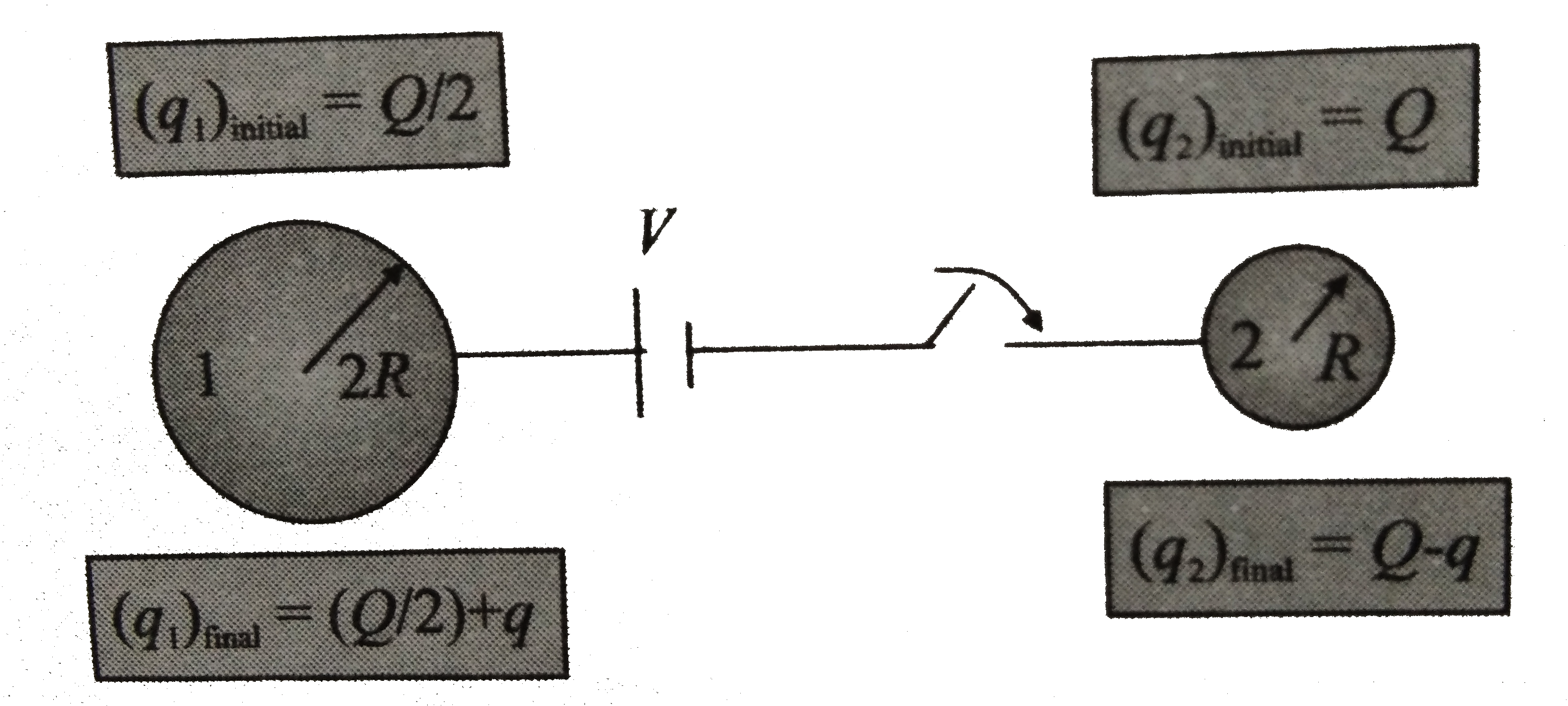
View SolutionTwo conducting spheres of radii `6 km` and `12 km` each, having the same charge `3xx10^(-8)C`, are kept very far apart. If the spheres are connected to each other by a conductiong wire, find
i. the direction and amount of charge transferred and
ii. final potential each sphere.
View SolutionA solid conducting sphere of radius 10 cm is enclosed by a thin metallic shell of radius 20 cm. A charge `q = 20 muC` is given to the inner sphere. Find the heat generated in the process, the inner sphere is connected to the shell by a conducting wire.
View SolutionAn isolated coductor, initially free from charge, is charge by repeated conacts with a plate, which afrer each contact has a charge Q due to some mechanism.If q is the charge on the conductor after the first operation, prove that the maximum charge that can be give to the conductor in this way is `Qq//Q-q`.
View SolutionTwo capacitors `C_(1)` and `C_(2)` are charged 2uF AND 3uF seperately to potentials `20 V and 10V`, respectively. The terminals of capacitors `C_(1) and C_(2)` are marked as (A-B) and (C-D), respectvely. A is connected with `C and B` is connected with D.
i. Find the final potential dsifference across each eapacitors.
ii. Find the final charge in both capacitors
iii. How much heat is produced in the circuit.
View SolutionIf A is connerted with D and B is connected with C find the potential difference a across each capacitor and the final charge in each capacitor.
View SolutionIn , different capacitors are arranged. Find the equivalent capacity across the poinsts (A) and (B)
.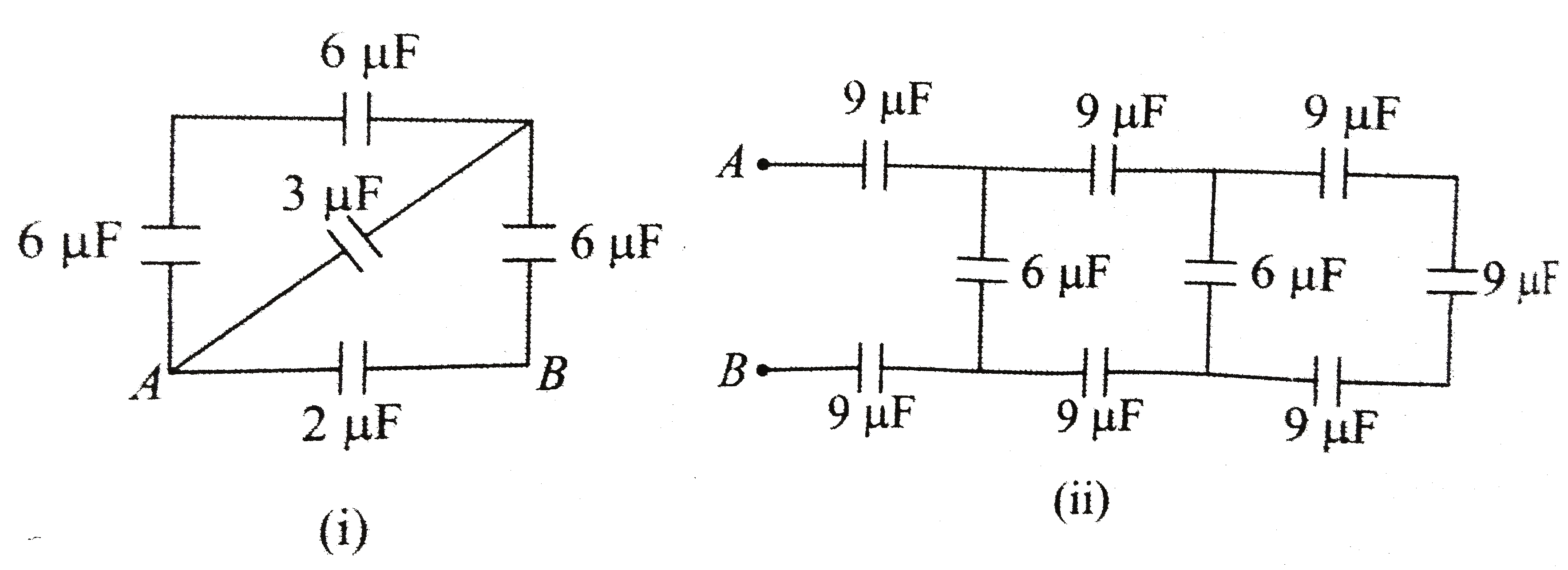 .
.
View SolutionDifferent capacitors are arranged as shown in Fig. `4.42` Final the equivalent capacity across the points (A) and (B).
 .
.
View SolutionThree capacitors are arranged as shown in. Find the equivalent capactiy across the points A and B.
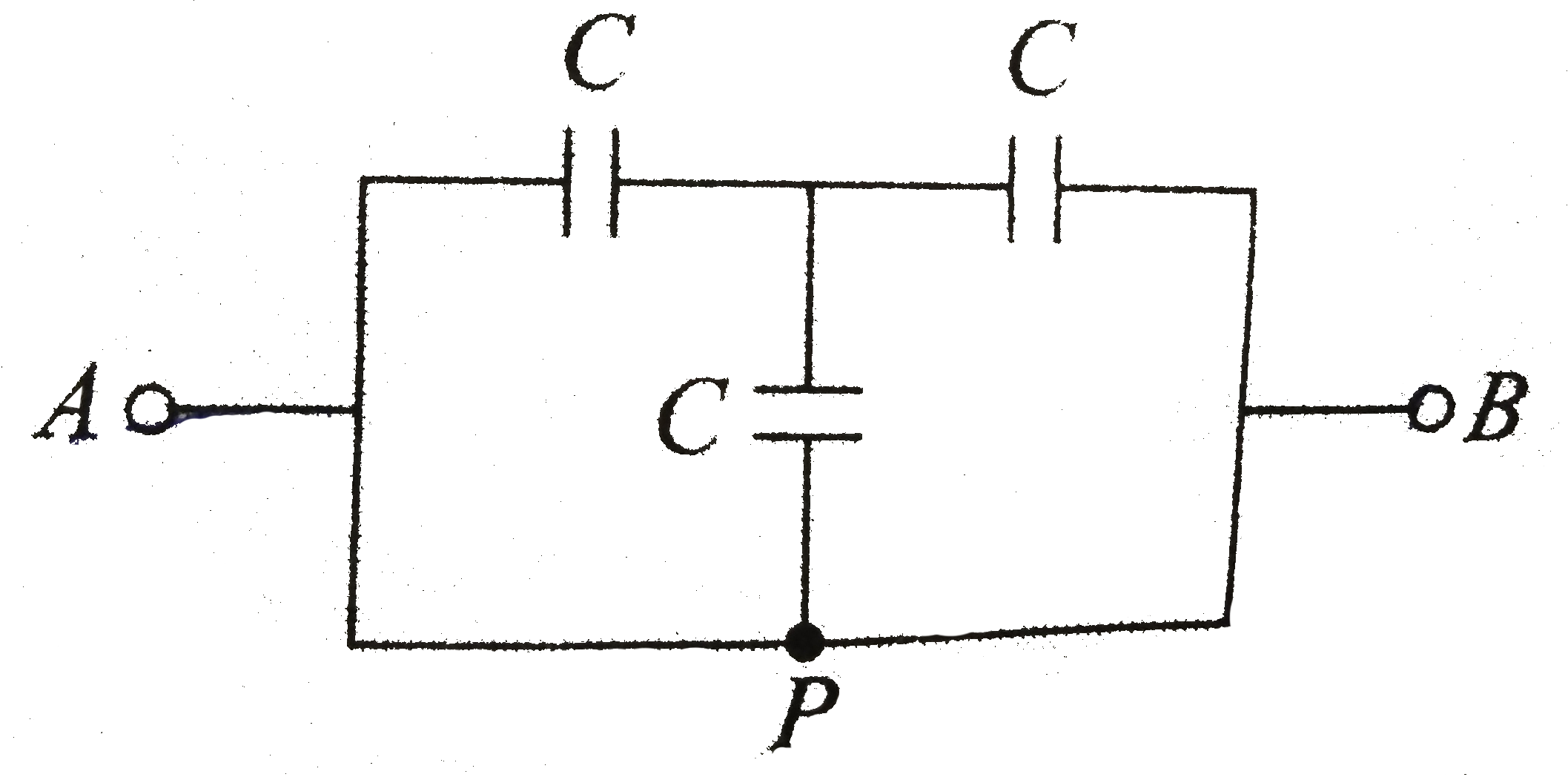 .
.
View SolutionIn the circuit shown in the potential difference between the point a and b is `4 V`, Find the emf `epsilon` of the battery. Assume that before connecting the battery in the circuit, all the capacitors were uncharged.
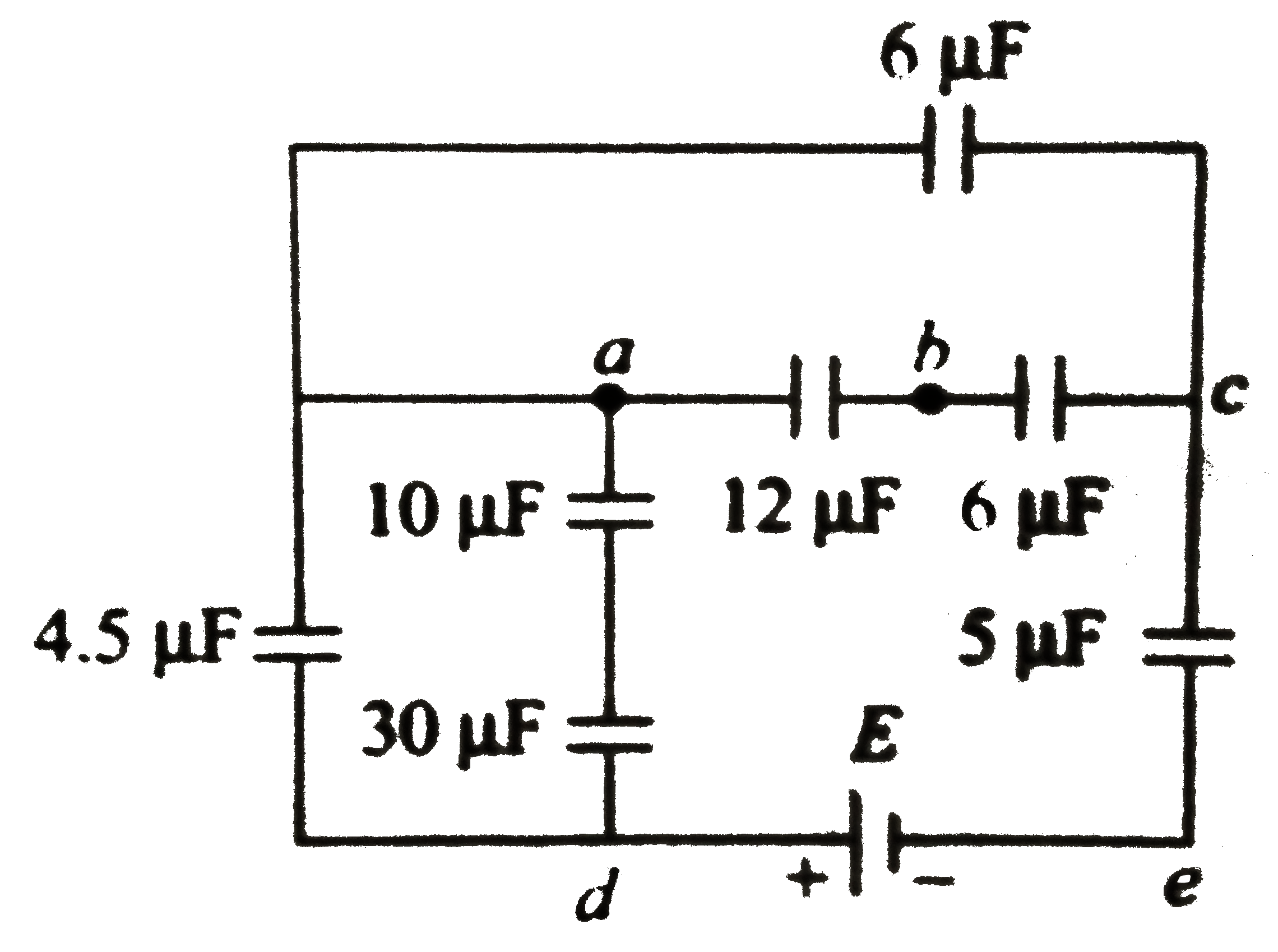 .
.
View SolutionA capacitor is made of a flat plate of area A and a second plate having a stair -like structure as shown in figure. The width of each stair is `a` and the height is `b` . Find the capacitance of the assembly.
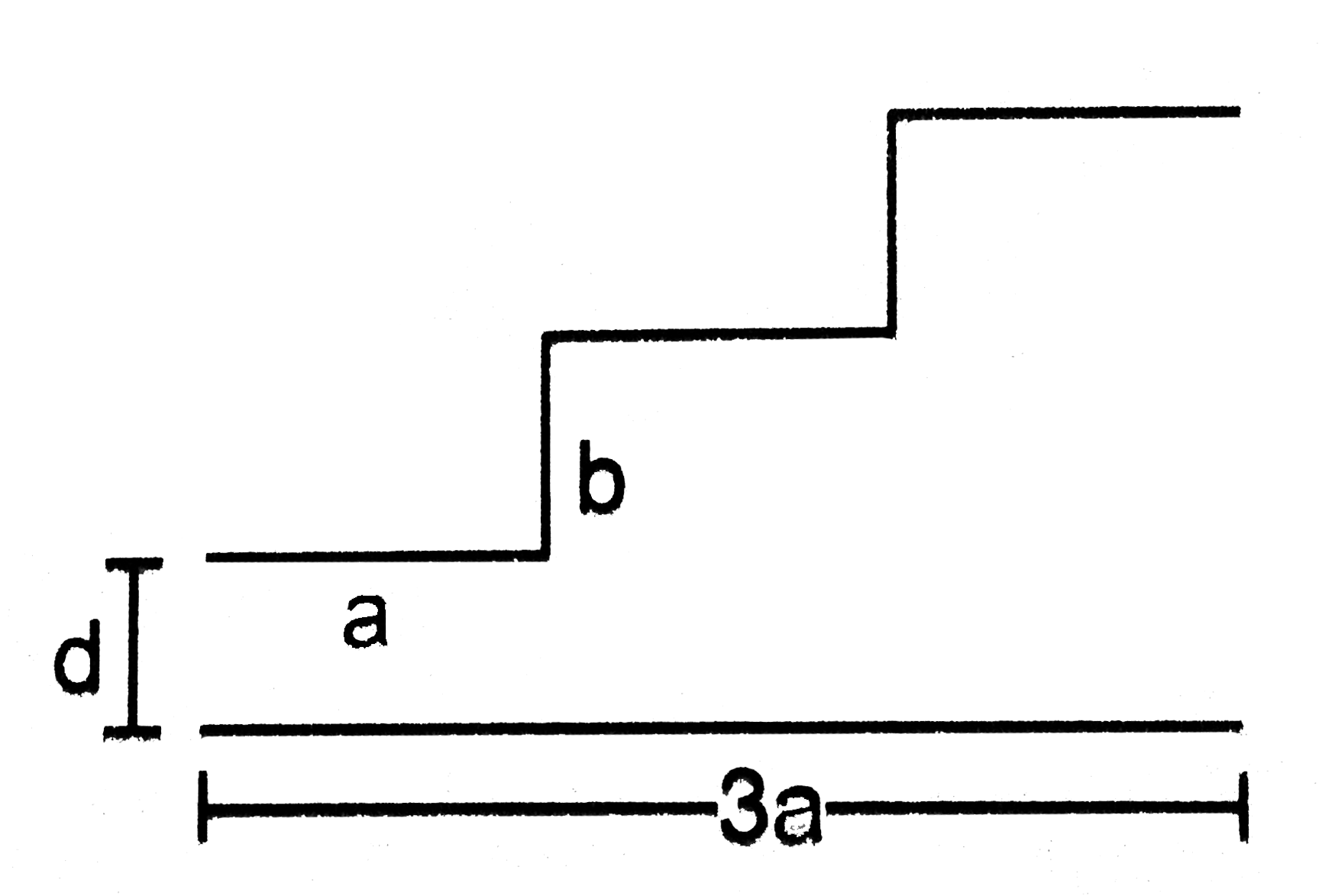
View SolutionThree capacitors of capacitances `3 muF`, `6muF`, and `4 muF` are connected as shown across a battery of emf `6 V`.
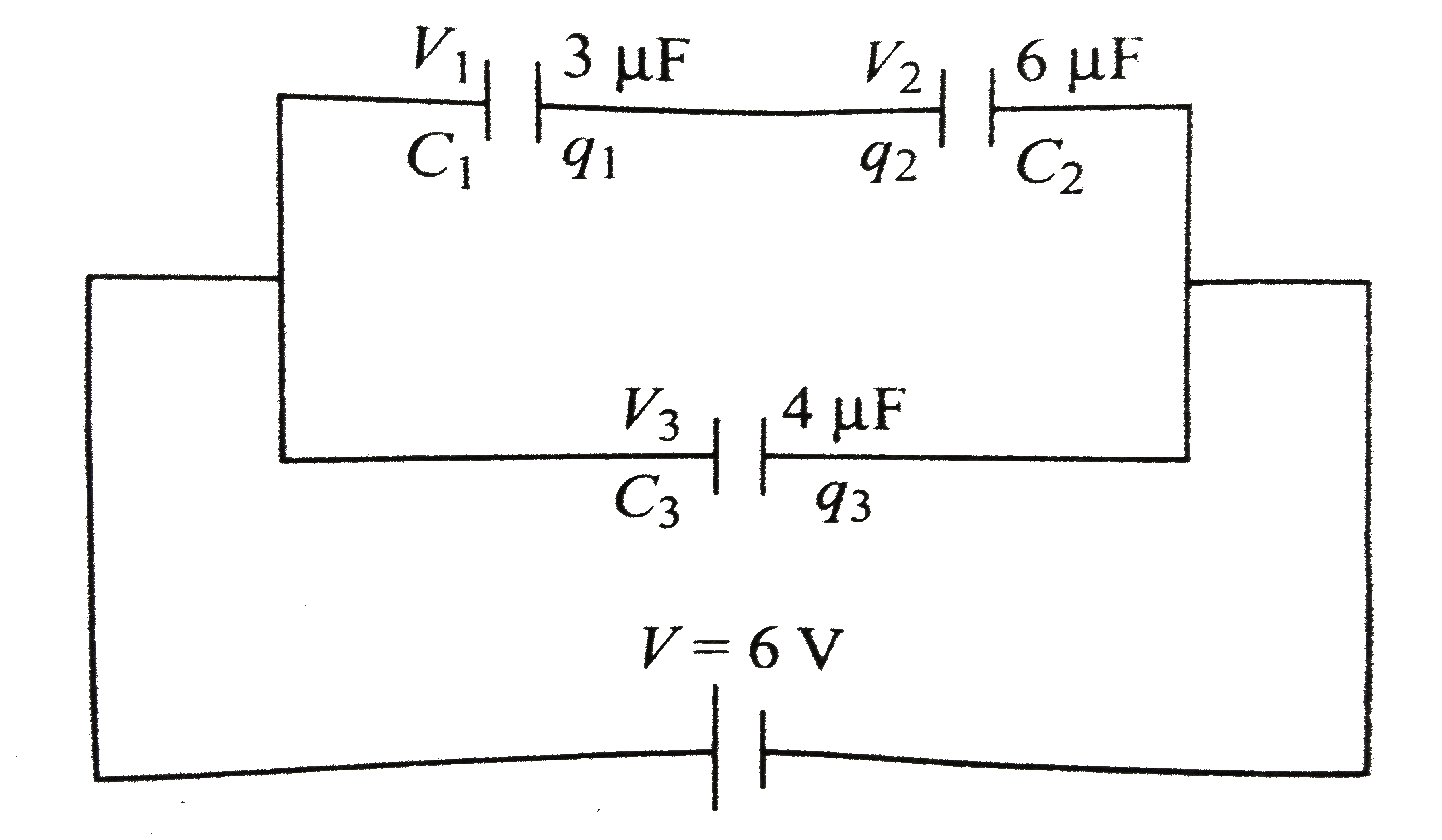 .
.
i. Find the equivalent capacitance,
ii. Find the potential difference and charge on each capacitor.
iii. Find the energy stored in the system of capacitors and total energy stored in the system of capacitor.
View SolutionThree capcitors of capacitances `4 muF`,
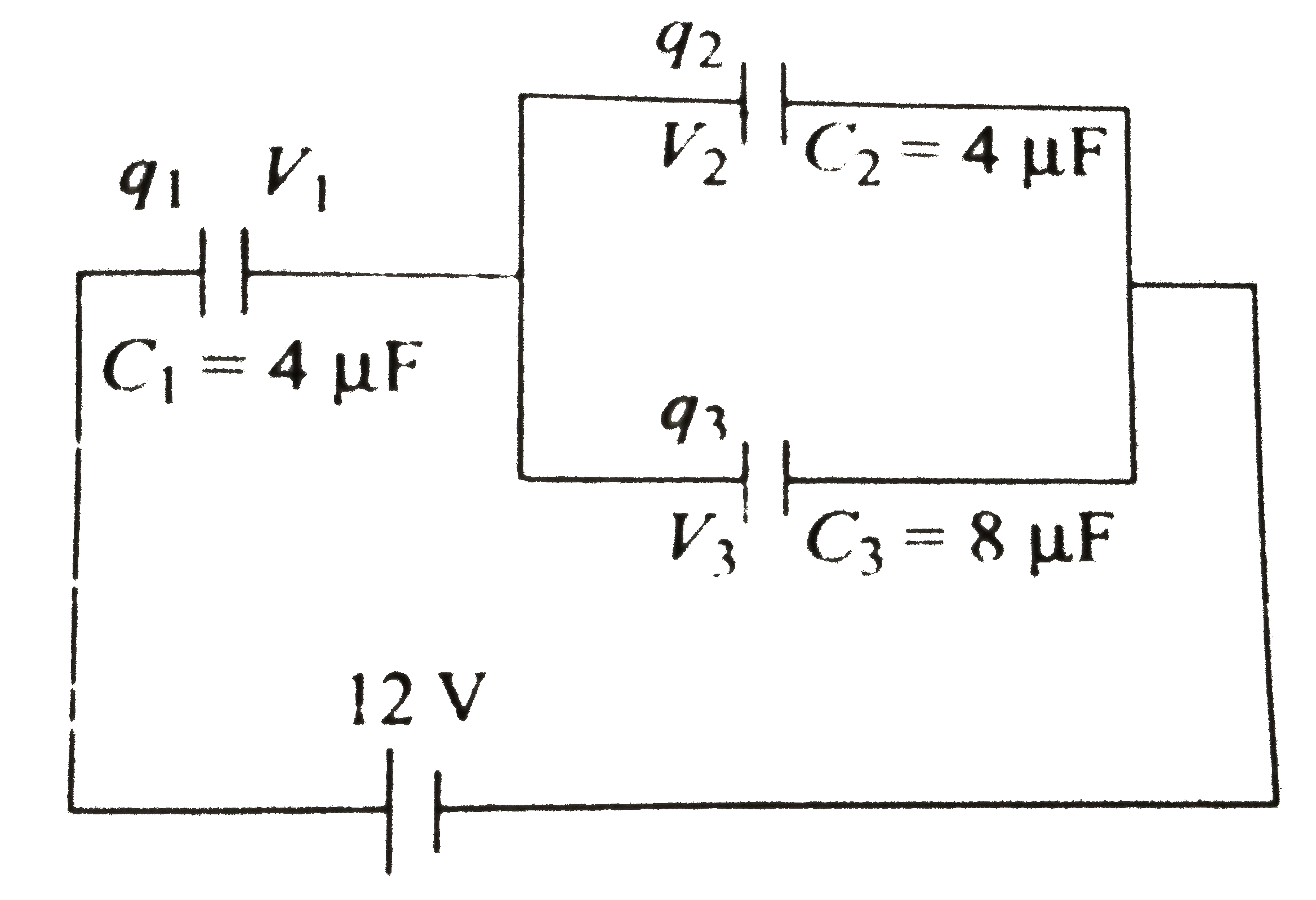 .
.
`4 muF`, and `8 muF`, are connected as show across a battery of emf `12 V`.
i. Find the equivalent capacitane.
ii. Find the potential difference and charge on each capacitor.
iii. Find the energy stored in each capacitor and the total energy stored in the system of capacitors.
View SolutionFind the capacitance of the infinite ladder shown in figure.
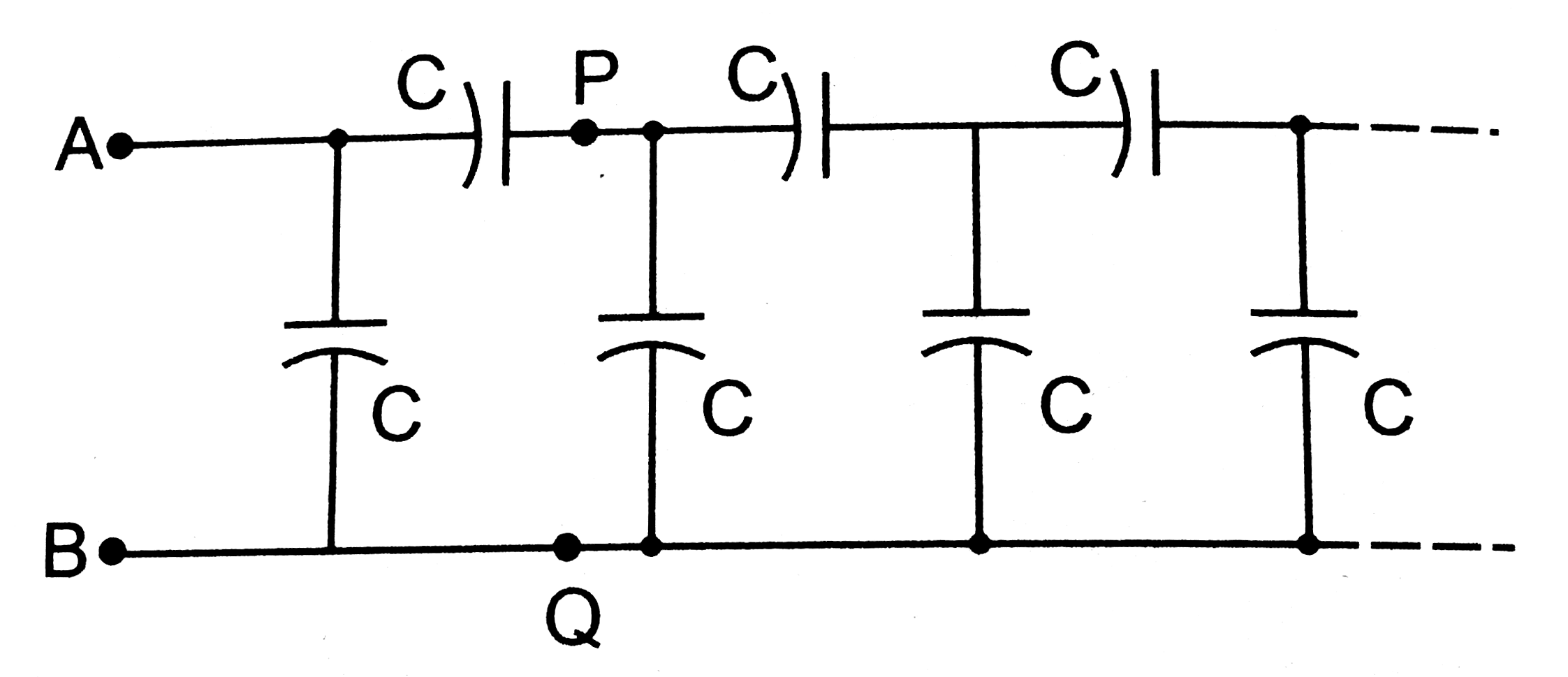
View SolutionA finit ladder is constructed by connecting several sections of` 2muF,1muF` capacitor combinations as shown in figure . It is terminated by a capacitor of capacitance C . What value should be chosen for C, such that the equivalent capacitance of ladder between the points A and B becomes independent of the number of sections in between ?
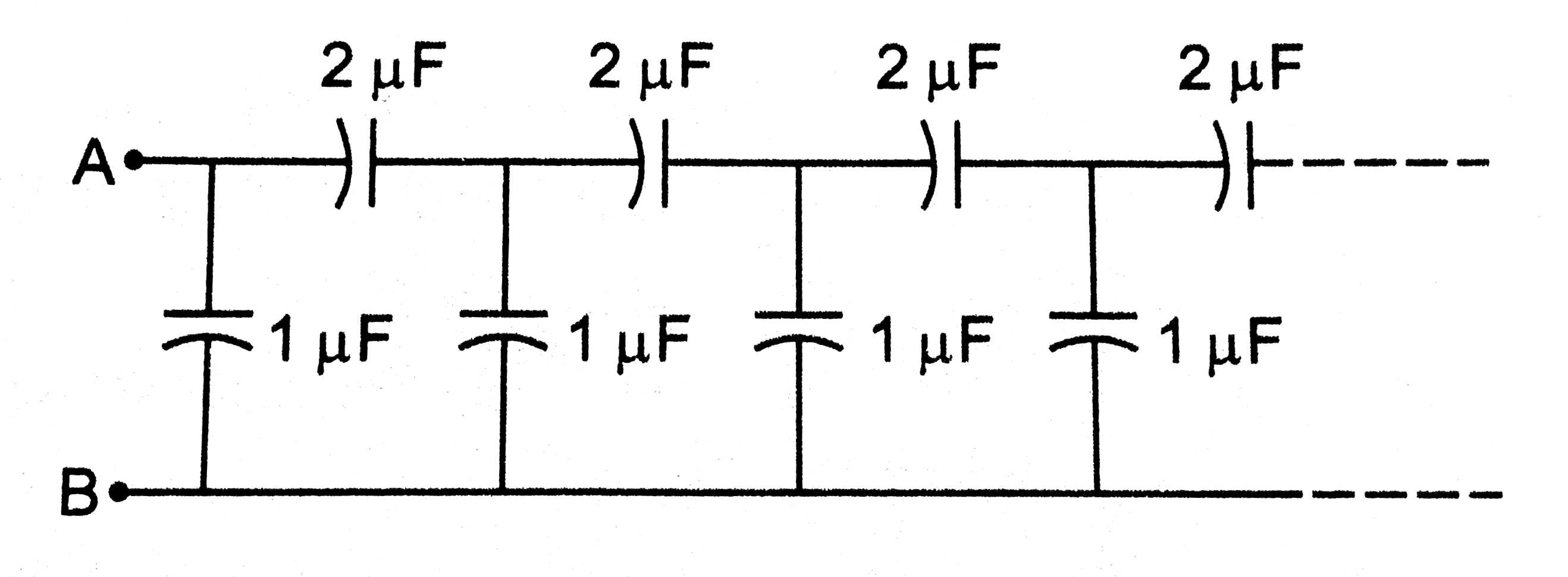
View SolutionFind the potential difference `V_(a)-V_(b)` between the points (1) and (2) shown in each part of Fig.
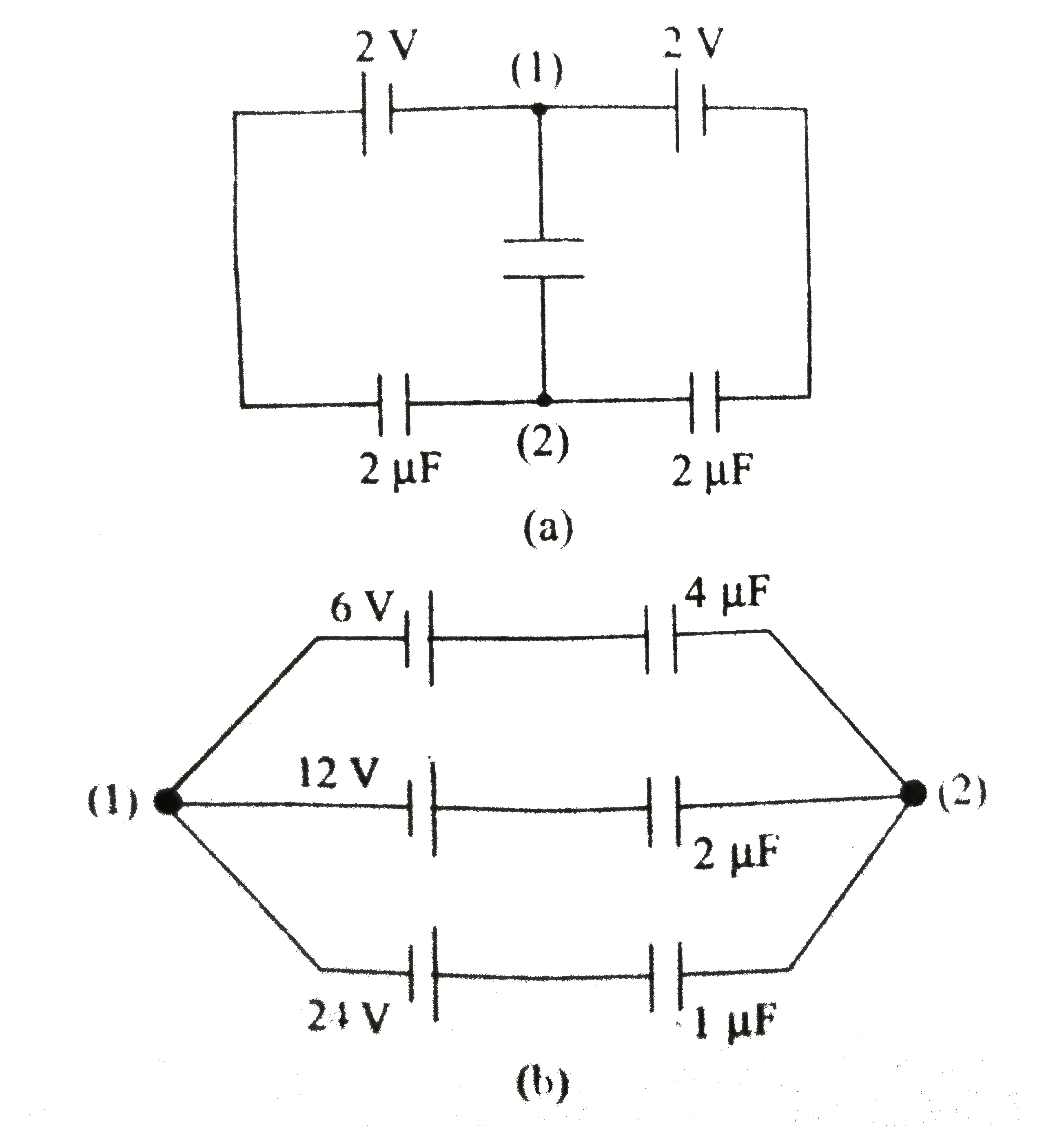
View SolutionWhat is `V_(A)-V_(B)` in the arrangement shown in.What is the condition such that `V_(A)-V_(B)=0`
View SolutionSix capacitors `C_(1)=C_(2)=C_(3)=C_(4)=C_(5)=C_(6)=C` are arranged as shown in. Determine the equivalent capacitance between A and B.
View SolutionIn what are the charger on all the four capacitors?
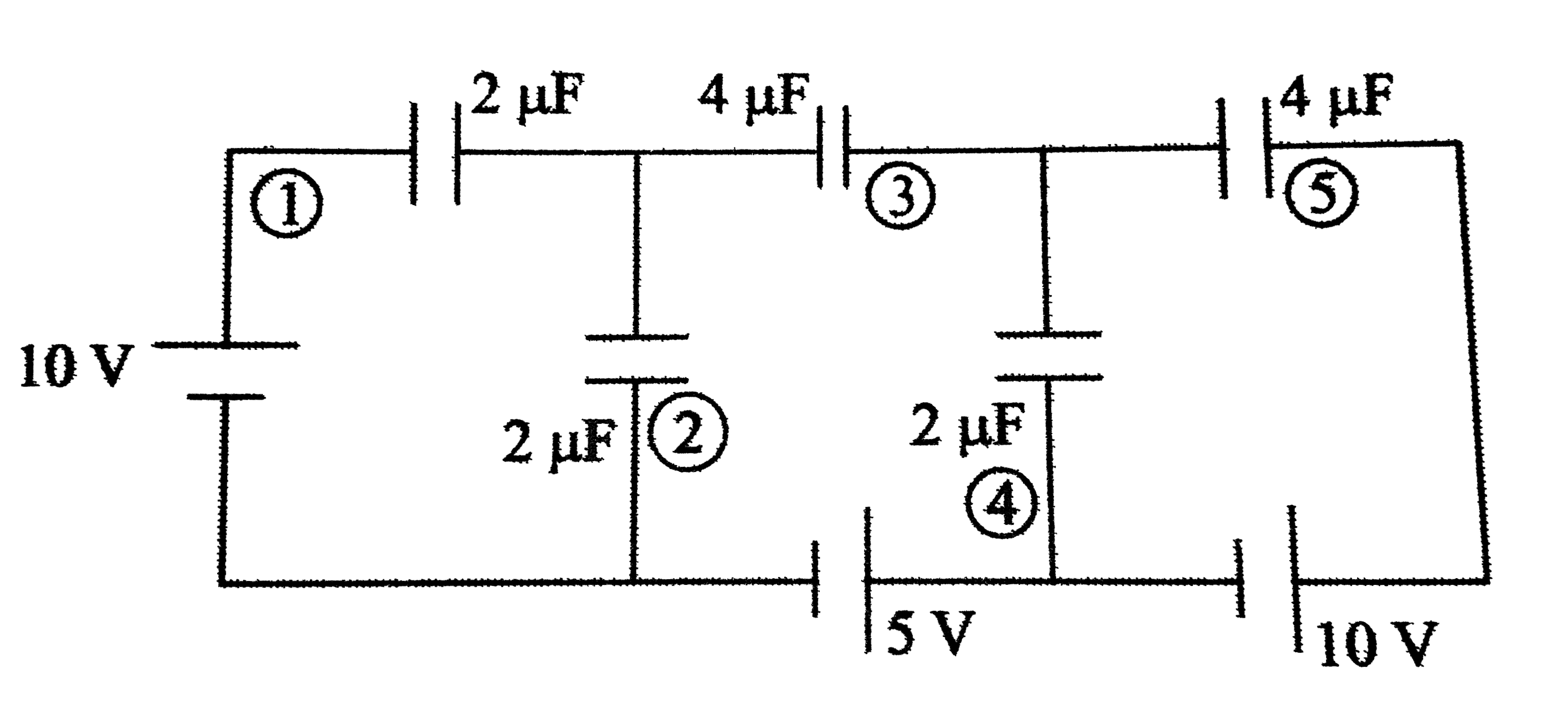 .
.
View SolutionFind the potential differnce `V_(A)-V_(B)` between points `A` and `B` of the circuit shown in.
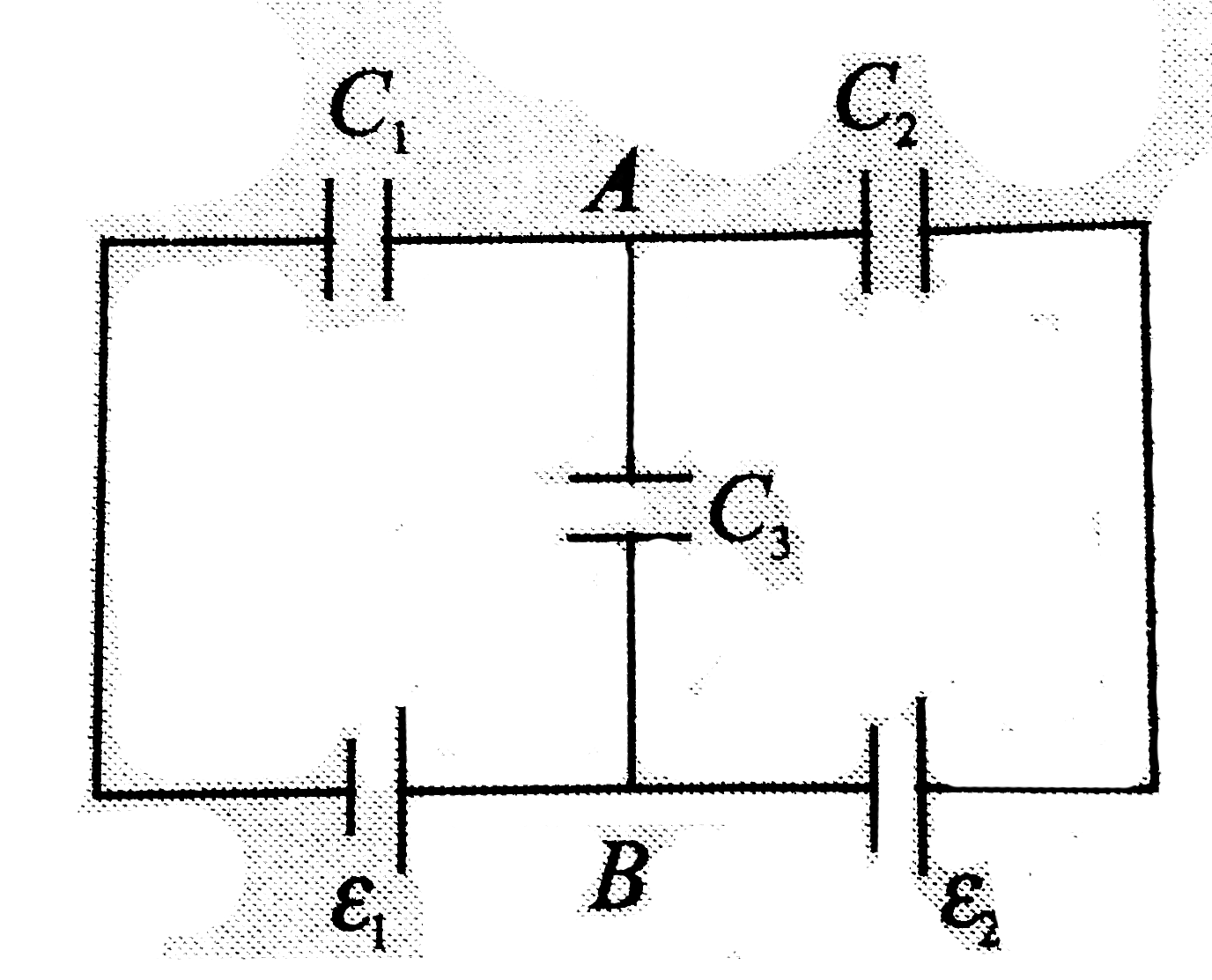 .
.
View SolutionEach of the three plates shown in figure has an area of 200 cm^2 on one side and the gap between the adjacent plates is 0.2 mm. The emf of the battery is 20V. Find the distribution of charge on various surfaces of the plates. What is the equivalent capacitance of the system between the terminal points?
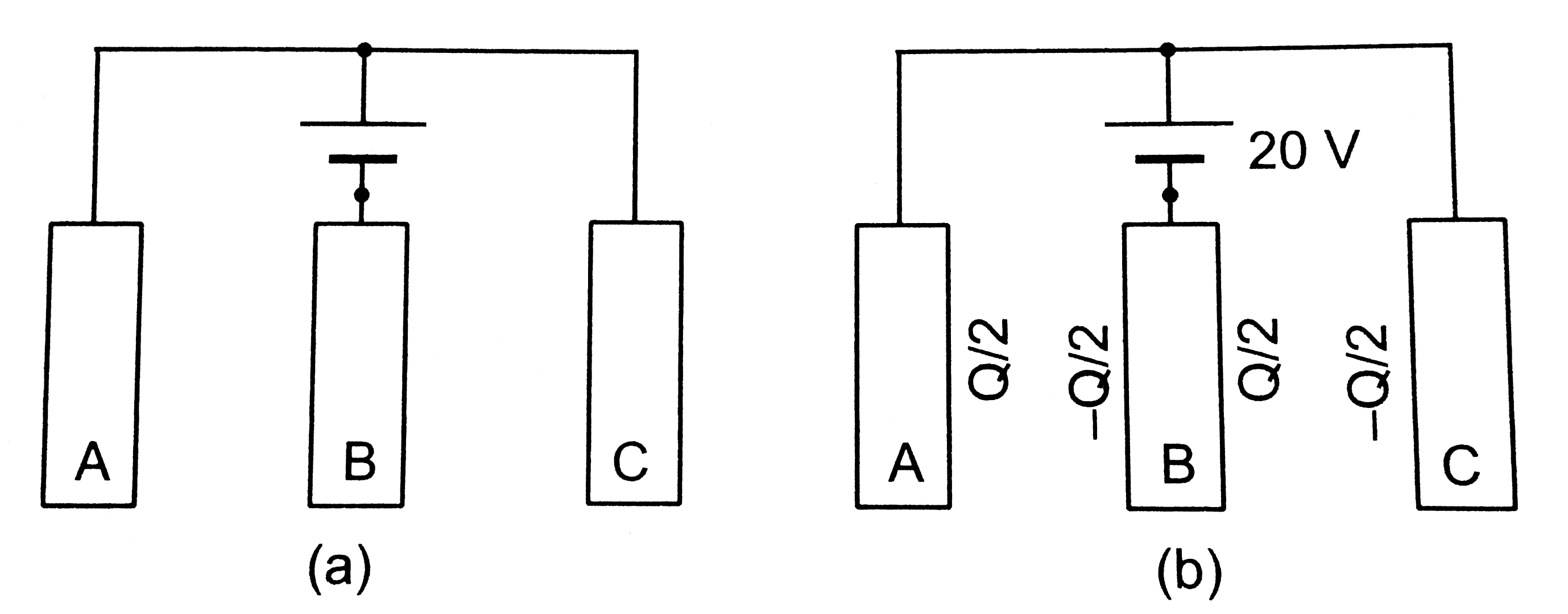
View SolutionIdentical metal plates are located in air at equal distance d from one another. The area of each plate is equl to `A` Evaluate the capacitance of the system between P and `Q` if the plates are interconnected as shown in.
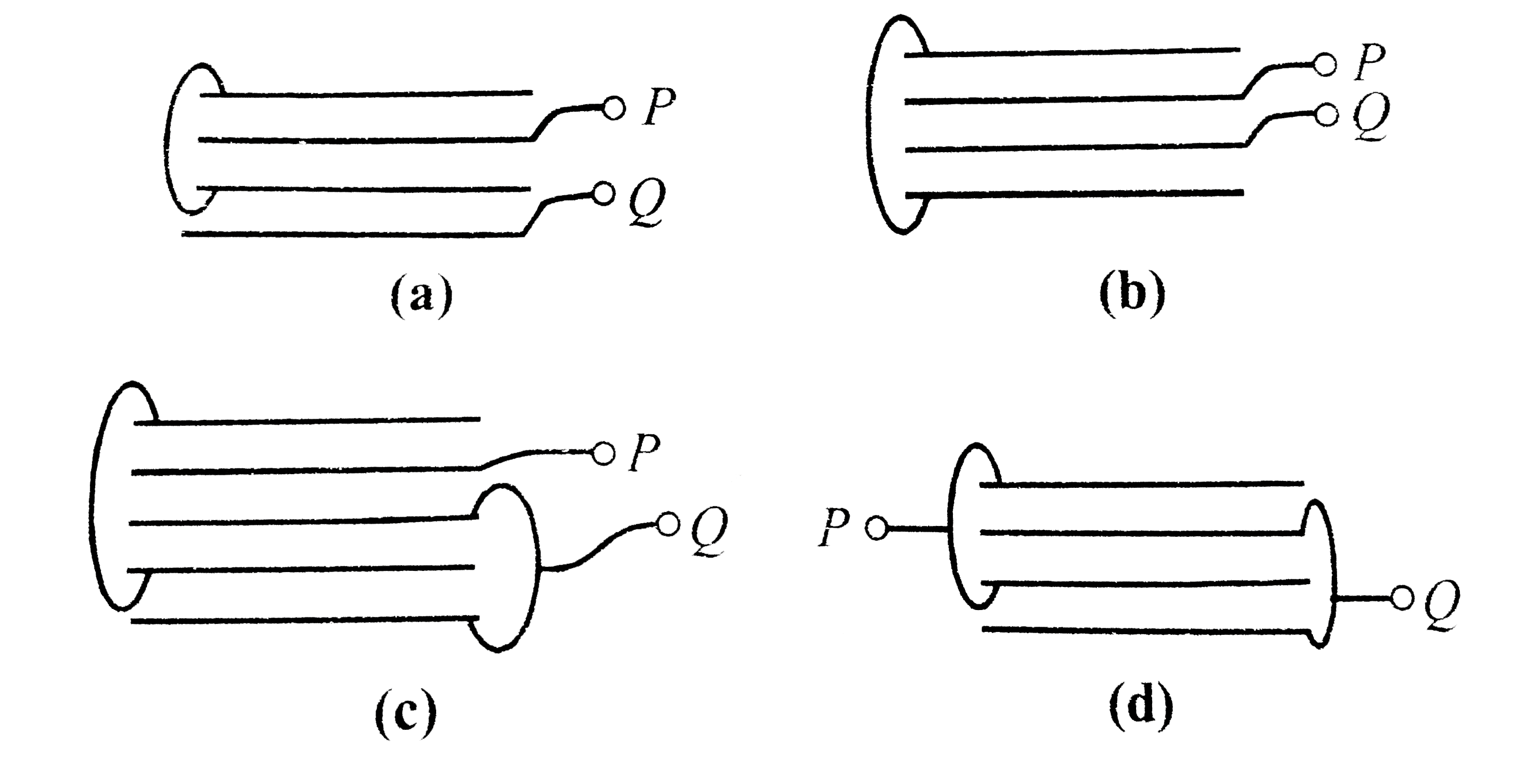 .
.
View SolutionFour identical plates, each having area A, are arranged as shown in Fig. Find the equicalent capacity of the structure between (A) and (B).
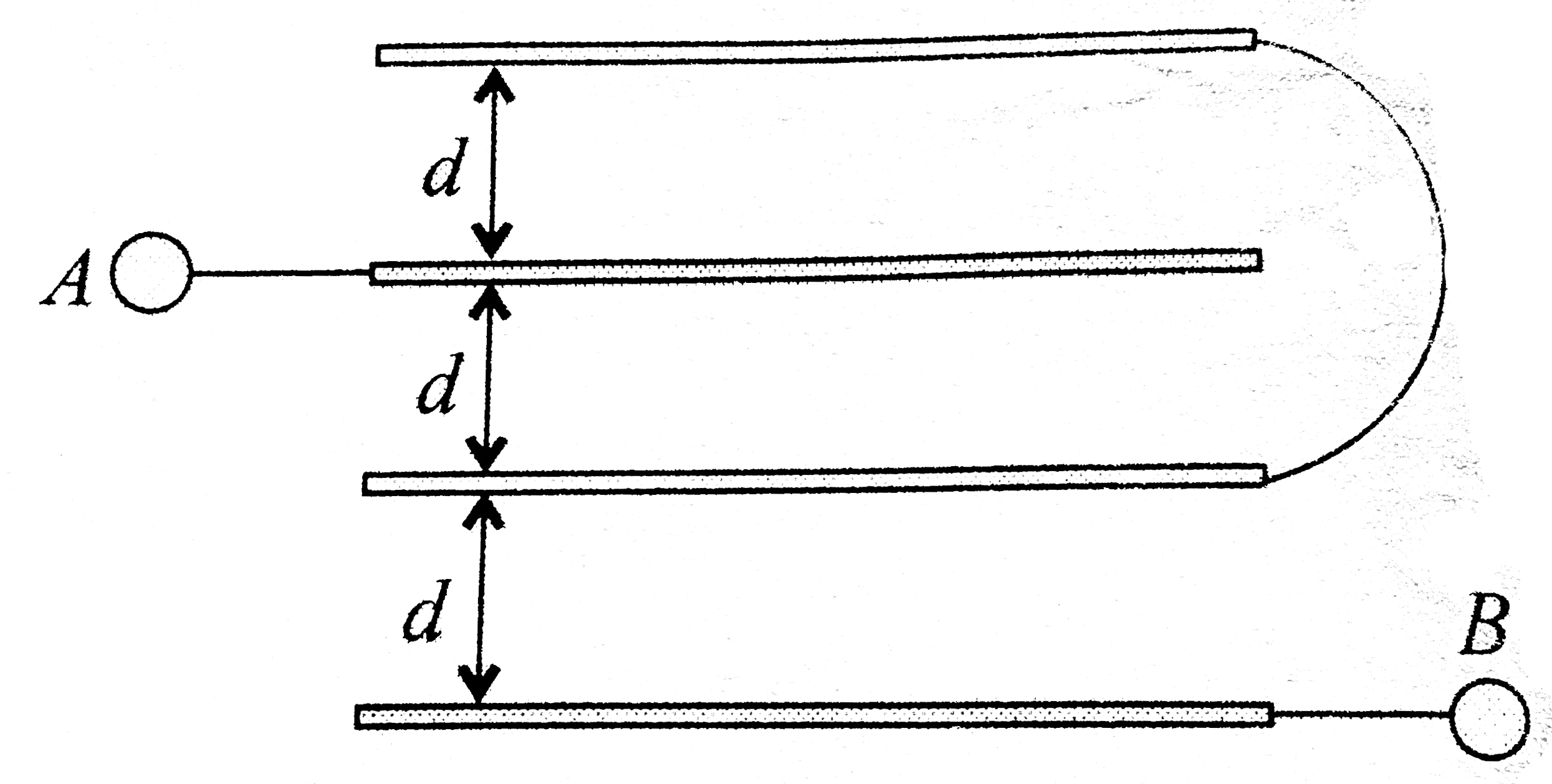 .
.
View SolutionFive identical plates, each having area A are arranged as shown in Fig. Find the equivalennt capacity of the strusture between A and B?
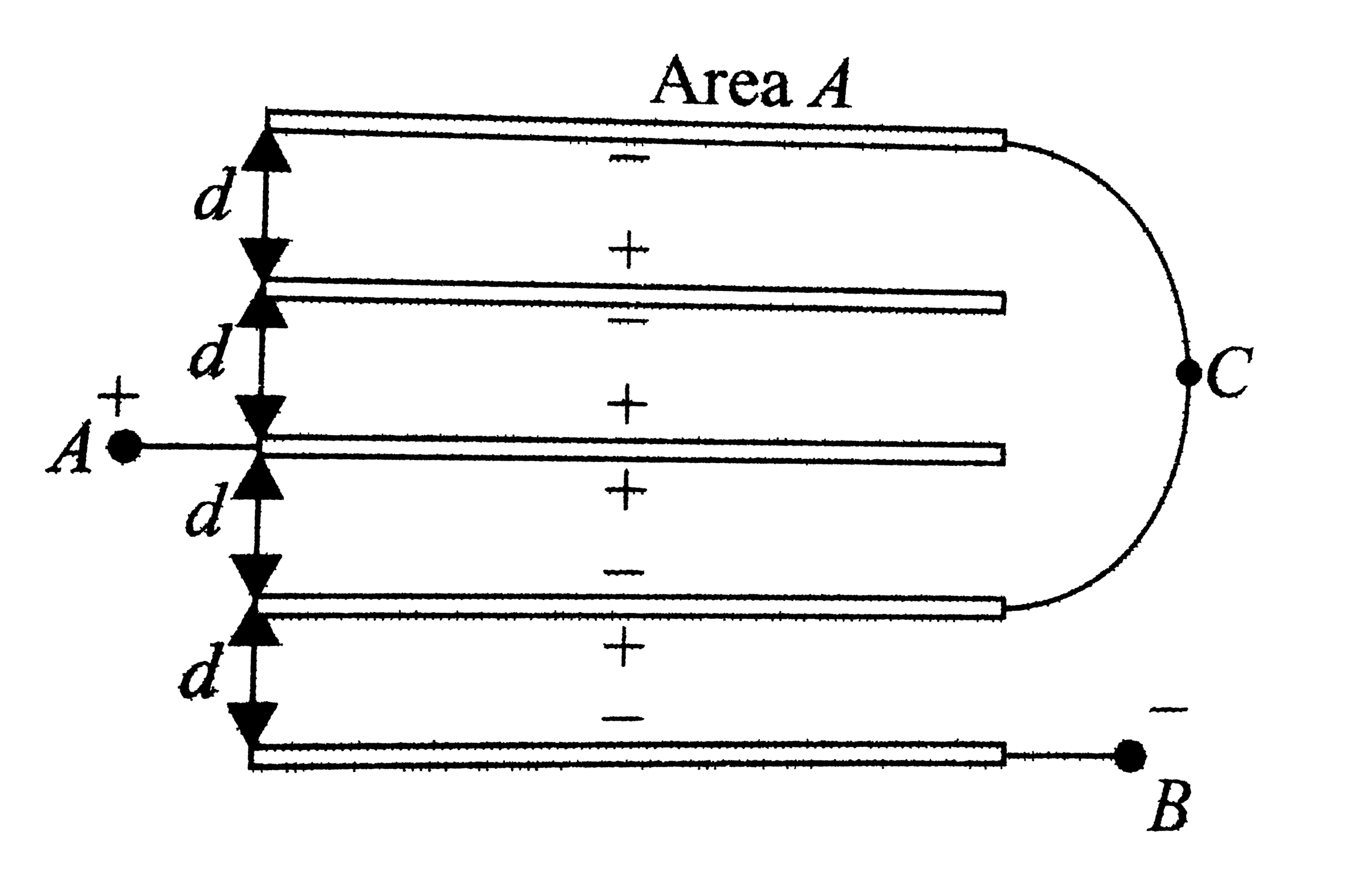 .
.
View Solution
Illustration questions and complete solutions for chapter CAPACITOR AND CAPACITANCE of CENGAGE PHYSICS (ENGLISH) of Class 12